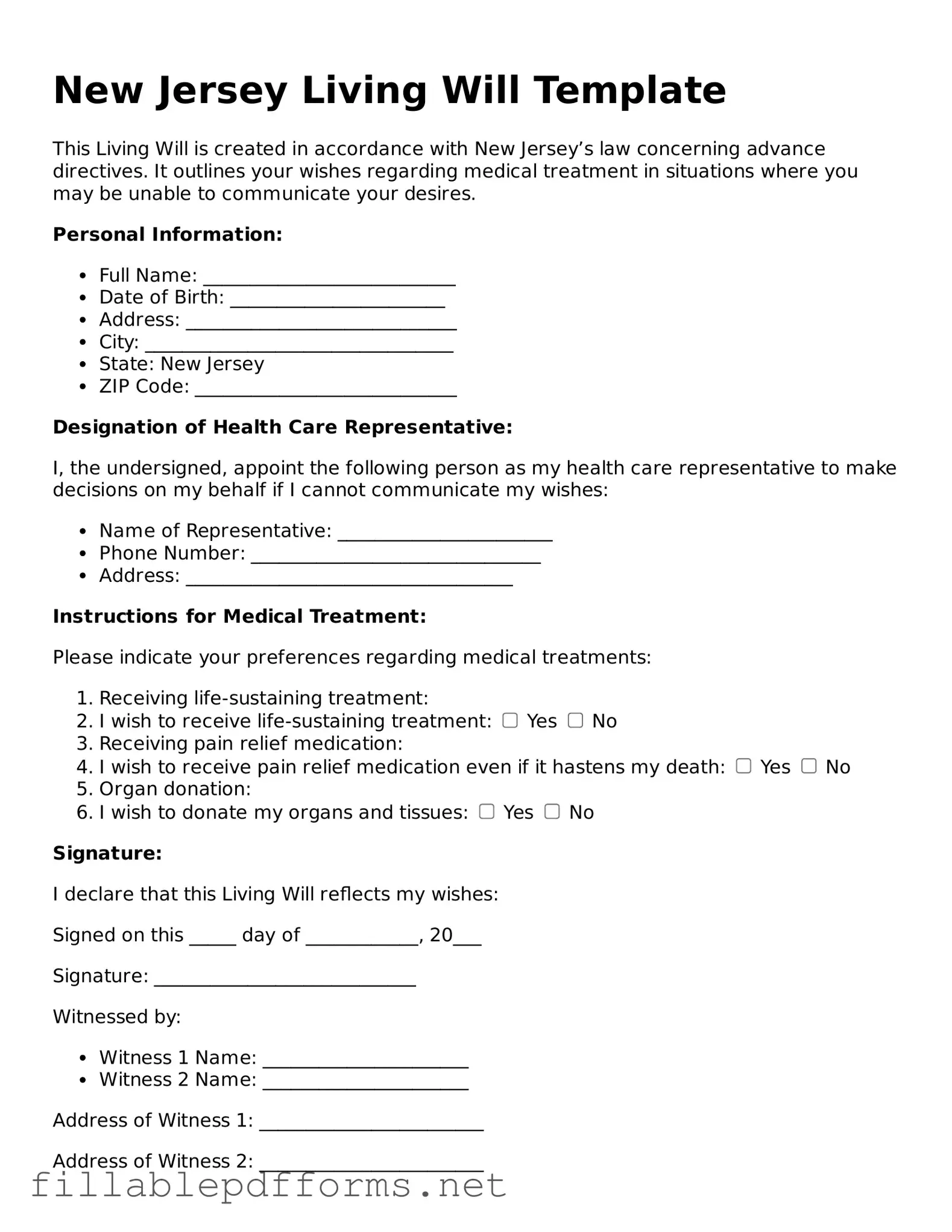Attorney-Verified Living Will Form for New Jersey State
A New Jersey Living Will form is a legal document that allows individuals to express their wishes regarding medical treatment in the event they become unable to communicate their preferences. This form plays a crucial role in ensuring that personal healthcare decisions align with one's values and desires. By completing a Living Will, individuals can provide guidance to their loved ones and healthcare providers during challenging times.
Launch Editor Here

Attorney-Verified Living Will Form for New Jersey State
Launch Editor Here

Launch Editor Here
or
▼ Living Will PDF
Almost there — finish the form
Complete Living Will online fast — no printing, no scanning.